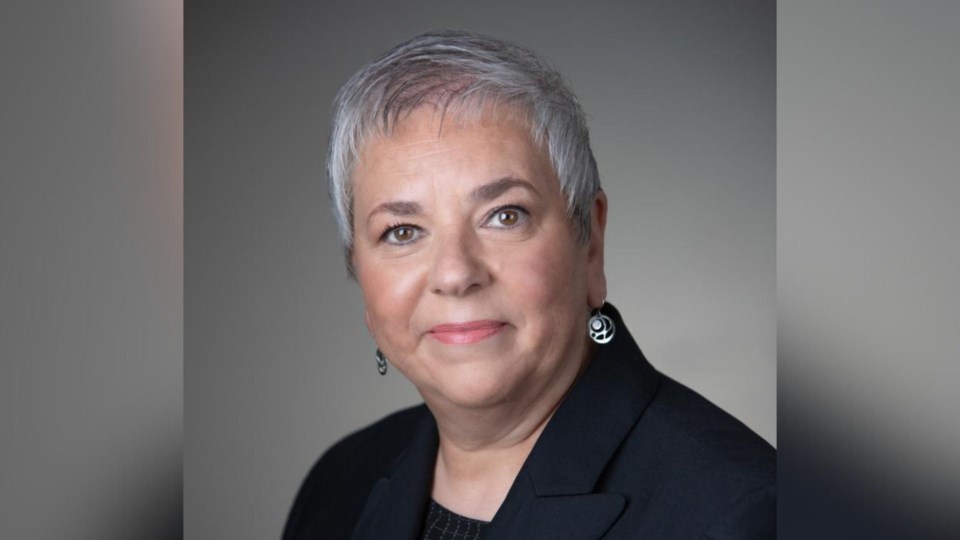Vancouver Coastal Health routinely broke access to information laws during the COVID-19 pandemic and, in turn, jeopardized the public’s trust in the health-care system, according to an audit by Information and Privacy Commissioner for B.C. Michael Harvey.
The health authority, whose board is chaired by Premier David Eby’s special health advisor Penny Ballem, was unable to process roughly three in four access to information requests made under the Freedom of Information and Privacy Act between April 1, 2020 and March 31, 2023. The findings were released Tuesday in Harvey's first audit report as commissioner, titled 'Vancouver Coastal Health Authority’s Duty to Assist.'
Overall, the authority exhibited “undue delays across the board” while improperly applying time extensions and inadequately communicating with applicants — roughly a third of the time, the authority did not even acknowledge a request was received.
With the authority putting up a curtain against the public’s eye and right to access information, Harvey warned that continuing to do so imperils the public’s trust in the health-care system.
“Trust will always be essential in our health system — people access these services often when they are at their most vulnerable. But we cannot ask the people of British Columbia to trust their health system, or indeed any public service, as a matter of faith,” wrote Harvey, underscoring such trust was even more vital during unprecedented public health restrictions on society during the pandemic emergency response, which officially concluded on July 26, 2024 when all orders were rescinded.
Harvey stated the authority’s “core business, as a public health authority, is not just the provision of health services but rather the transparent and accountable provision of health services.”
While the authority responded to 28 per cent of applications within the 30-day benchmark, in the 72 per cent of cases where it did not, staff took, on average, 104 days to respond.
The authority had used the pandemic as an excuse to explain its delays; however, Harvey noted compliance with the act is “not discretionary” and “during challenging times, transparency and accountability are crucial to maintaining public trust.”
Harvey found the authority started charging applicants $10 (for non-personal information) in August 2022 but took until May 6 to start accepting e-transfer payments, thus frustrating an already beleaguered process.
The authority was also found to be lacking in proactively disclosing general records including, but not limited to, financial statements, policies, health inspection reports, water quality reports, and overdose surveillance updates.
To date, the authority has yet to post its 2023/2024 statement of remuneration and contract payments.
In 2022, the authority’s CEO Vivian Eliopoulos was paid $375,326 for running the authority, which operates facilities on the west side of Metro Vancouver.
Eliopoulos’ salary is, however, shown on the B.C. government public accounts list, showing she was paid $405,584 last year, with total compensation reaching $436,202.
In 2023, Ballem was paid $88,034 (a $29,625 retainer plus $360 per meeting). Ballem is also a paid advisor to the Premier's Office.
Glacier Media offered Eliopoulos and Ballem an opportunity to comment on Harvey’s report but did not receive a response by the time of publishing.
Harvey also recommended the authority expand items in its proactive disclosure list, based on popular requests.
For the report, Harvey’s office examined 350 responses from a sample of 519 requests over the three years.
Harvey found in 2021/2022 the average response time was 102 days, although the responses varied depending on who was making the request. The authority, per the report, paid the least deference to media, taking 171 days to respond that year as opposed to 82 days for individuals.
“Overall, 21% of sampled requests (73 of 350) remained in a period of stagnation, meaning several weeks or months went by without any apparent or documented work by VCH to move the request along,” wrote Harvey, who recommends an improved file management system for staff.
“It is not surprising that VCH responses were not often timely, considering that it took FOI staff an average of 17 business days to direct program areas to search for records, and a further average of 19 business days for program areas to conduct the search,” stated Harvey.
However, there is a silver lining to the report, Harvey noted.
“New processes have been put in place to escalate FOI matters to executive when necessary. I believe this shows VCH has recognized the need for a cultural change that required leadership from the top,” added Harvey, noting non-compliance went from 80 per cent in 2021/2022 to 57 per cent in 2022/2023.
After publication, spokesperson Jessica Holmes noted, via email, 2023/2024 financial statements will be posted by October, per provincial regulations. Holmes added that the authority has implemented new digital management software, hired two new FOI staff members and is in the process of hiring a new FOI manager. Eliopoulos and Ballem did not personally respond.


